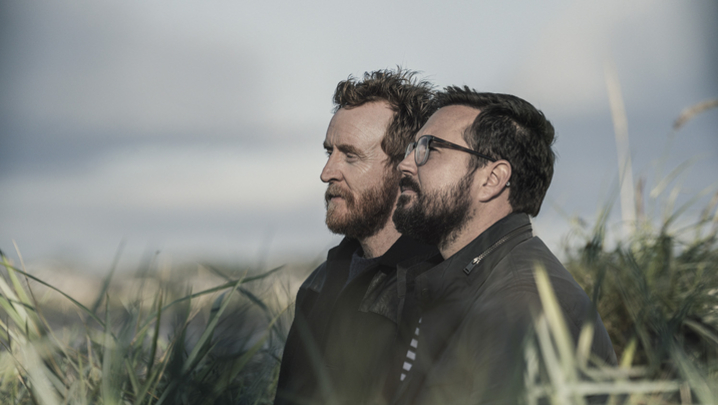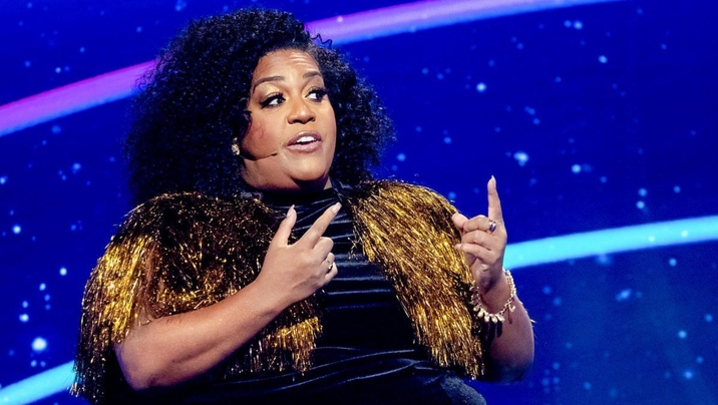An RTS event unlocks the secrets that made BBC One drama The A Word such a success.
Over three series, The A Word has been widely praised for its honest portrayal of autism and the tensions this unleashes on a family. But The A Word is also laugh-out-loud funny and joyful – and, given its Lake District setting, beautiful to look at.
The BBC One drama, which finished its third series in early June, tells the story of Joe, a young boy with autism, and his fractious, larger-than life extended family.
At an online event hosted by RTS North West, BBC North and MediaCity UK, BBC Breakfast’s Naga Munchetty spoke to its writer, Peter Bowker, and two of its stars, Christopher Eccleston and Pooky Quesnel.
Stockport-born Bowker taught children with severe learning disabilities, many of whom had autism, for 12 years before his writing career took off. He was spurred into action by the Israeli series Yellow Peppers, which provides the template for The A Word – “a dysfunctional family with, at its centre, a young boy who’s on the autism spectrum.
“It felt like I was being giving permission to write about my own material and understanding of it. As the series has gone on, it’s moved further and further away from the original.”
Max Vento, who is not autistic, plays the drama’s central character, Joe. “We decided that it was too much to ask of a child of five on the autism spectrum to play another child on the spectrum. When we’ve cast older characters with autism, we’ve always insisted the actor is someone on the spectrum.
“Max was pretty much everyone’s first choice from the moment we saw him. I remember seeing Max and saying that he looks like a chubby Ian Curtis [from Joy Division]. For me, that fulfilled the criteria, given that his musical tastes are, bizarrely, the taste of a 61-year-old man from Manchester.”
Music is a prominent feature of the programme, with Joe playing post-punk classics through the headphones almost permanently clamped to his head. “I’ve been Stalinist about this: it’s entirely my iTunes [collection]. Max hates my musical taste,” said Bowker.
Quesnel – who, like Eccleston, was born and brought up in the Salford area – plays Louise, the mother of Ralph, who has Down’s syndrome, as does the actor who plays him, Leon Harrop. “Her whole life has narrowed down to championing Ralph,” she said. “She is a tiger mum.” Fiercely protective, when she feels Ralph is threatened she turns on people, even her boyfriend, Maurice.
Eccleston plays Maurice, Joe’s grandad, who, when the series starts, has entirely unreconstructed views about disability and a vocabulary that is decades out of date. It is a fantastic role that the Our Friends in the North actor and former Doctor Who makes the most of it. “There’s nothing more glorious in a PC world to play somebody non-PC,” he says.
Now, the actor says he is “a fully paid-up member” of the “PC brigade”, adding: “I used negative terms for people with learning difficulties as a child and as a young person. Coming to London, going to drama school, changed me.”
“It’s the stuff of drama: whenever we present a character who is fully rounded, we all switch off. The [best] characters in drama are the ones that make mistakes.”
“You have a responsibility,” said Bowker, “to be authentic without celebrating that [pejorative] language [about disability] and making it respectable again. I don’t like dramas that rub your nose in it, that say, ‘Look how daring I am as a writer.’”
Writers, Bowker added, who make a subject “so repellent and difficult” don’t engage the audience. Rather, they “invite [viewers] to celebrate the ego of the writer who’s brave enough to use these terms”.
TV viewers embrace the realism of Bowker’s writing, even if Maurice can make them feel uncomfortable. “People always say, ‘Thank God, you’ve not soap-boxed or been po-faced about it.’ Maurice is the key to that,” said Eccleston.
The actor is familiar with both Bowker and the theme of autism. They worked together on the 2002 BBC Two drama Flesh and Blood, which won each of them RTS awards, for Writer and Actor. Eccleston plays a man, adopted at birth, who finds out that his birth parents have learning disabilities. In March, the duo discussed Flesh and Blood at another RTS North West event (see Television, April 2020).
Bowker has also bagged RTS Writer awards for Occupation and Eric & Ernie.
To get inside the character of Maurice for The A Word, Eccleston drew on his own father’s life. “There’s something about him that’s desperate to connect to his family and to life. I got that from my father, who had a rudimentary education to the age of 14, when he was kicked out into the world.
“It’s based very much on my dad’s beautiful, beautiful heart but lack of confidence with medical terminology. But my dad had the nobility to see a human being for what they were and… try to connect.
“My dad, my brothers, a lot of the men I grew up with, felt trapped in the machismo, but, when really needed, the feminine and the tenderness could come out.”
Quesnel added: “We can all see so many different aspects of our true selves, across many of the characters, male or female. Pete gets to the authenticity of how people think and feel.”
In series 3, Harrop – who has also appeared in north-west-set dramas Moving On and Brassic – takes centre stage, as Ralph’s romance with Katie blossoms. She is played by Sarah Gordy, who also has Down’s syndrome.
Eccleston explained how working with Harrop had forced him to reassess his craft: “You have to up your game. The thing we’ve all done for 20, 30 years is reinvigorated by Leon’s presence and working methods.
“He taught me to relax, he taught me to have more fun. Leon unabashedly loves acting and performing. He has insecurities and he’ll have a chat with his dad about whether he’s done it right or wrong but, basically, he’s free of a lot of the neurosis that I carry about the impact of my performance.”
“He’s completely unselfconscious,” said Quesnel. “He’s such a spontaneous and very, very funny person. He’s got this incredible sense of comic timing.”
“He’s got all the technique but [also] the joy on top of it,” added Eccleston.
Series 3 ends with the jubilant marriage of Ralph and Katie. Will there be more? “Towards the end of each series I’ve thought I was written out, I didn’t know where we could go,” said Bowker. “But then something grows in these characters and I can think of other journeys to take them on.
“Never say never again. I wanted something that would be satisfactory [to end on] if this was the last time we did it, but the door’s open from my point of view.”
Report by Matthew Bell. ‘Spotlight on… BBC One’s The A Word: The secrets of its success’ was held on 8 June, produced by Rachel Pinkney and supported by the University of Salford’s media production team. All three series of The A Word are available on BBC iPlayer.






